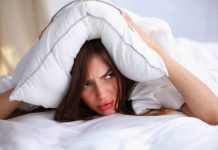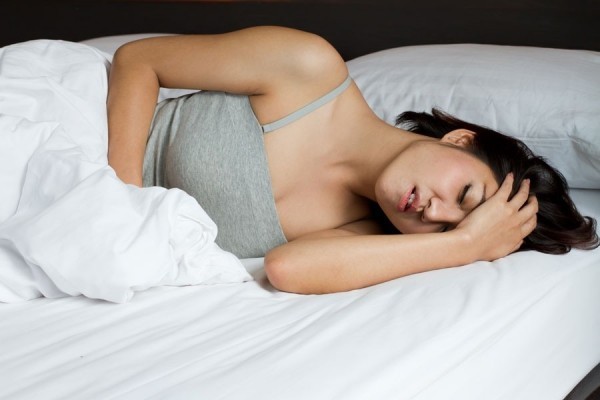For most people, trying to sleep or stay asleep is an uphill task. Millions of Americans suffer from the sleep disorder known as insomnia. In fact, it is believed that 10-30% of all the people in the world will experience an incidence of insomnia at least once in our lifetimes. Insomnia is a condition that is present when all 3 of the following criteria are met:
- Problems with starting or initiating sleep, difficulty maintaining sleep, or problems with waking up too early. All of these problems lead to chronic low quality sleep or what we can refer as non-restorative sleep.
- The problems described above occur even though one has ample opportunity and a favorable environment to sleep. For instance, the problems arise during the anticipated block of 7-8 hours you are required to be in your bed, rather than occur as a consequence of uninterrupted sleep maybe due to work or something else.
- The consequences of the problems mentioned above impact on your physical and/or mental function or quality of life during the day.
Insomnia a sleep disorder has a broad effect on our bodies. Typically, the most outright effects are related to the anxiety and stress felt due to the inability to initiate or go back to sleep. Despite the inability to sleep, the following day has persistent feelings of anxiety, fatigue, stress which greatly affect productivity. Despite the hectic daytime fatigue – caused by lack of sleep the previous night— attempts at sleep the following night are also impacted by the inability to initiate and/or maintain sleep and as a consequence the vicious cycle is continued.
The long-term harmful effects of this cycle are mostly, depression, weight gain, dementia, anxiety, work place and occupational injury, and several metabolicrelated impairments (metabolic syndrome). Metabolic syndrome is a combination of high blood pressure, high glucose, weight gain, and elevated cholesterol levels.
There is no single activity that cures insomnia without the need for medical intervention.
Let’s go over a few basic steps to consider if you have insomnia.
- Try not to force sleep. Let sleep come naturally, stay away from the bed if you are not feeling sleepy
- Sleep as long as necessary to make you feel rested. Typically, this is often 7-8 hours for the average adult. Then, once you feel rested, get out of bed.
- Avoid taking caffeinated beverages and energy supplements, especially after lunch.
- Make your bedroom conducive for sleep. You need to minimize your exposure to any stimuli that may interrupt your sleep. For example, turn off radios and televisions, avoid bringing your phone to bed, and turn off the lights.
- Resolve concerns, worries and needs before going to bed. The best way to do this is to formulate a list of needs that need to be addressed the following morning with actions and strategy to get the job done. Then put the list down in a location away from the bedroom and try to go to sleep.
- Exercise – I recommend light exercises 30-60 minutes a day. However, try to exercise at least 4 hours before your planned time to go to sleep.
- Avoid daytime and evening naps. Save your sleep for the 7-8 hour block
- Avoid taking alcoholic beverages a few hours before bedtime.
- Avoid smokingafter dinner
- Use an alarm clock to awaken you at the same time each morning, including weekends and the holidays.
For many of you, the steps above will help. However, there are many supplements, over the counter products, and sleep aids that may also help with your insomnia. These products give you a long-term solution. I have read various reviews of somulin. This is a natural supplement created by PrimeLife Labs that helps a person get the much needed sleep.
Somulin Ingredients
The active ingredients in Somulin are carefully selected to boost functionality. They include valerian root, melatonin, skullcap, and passionflower. Most of these ingredients were carefully chosen because of their ability to help promote better sleep and reduce stress levels. Add to that, the potency of all the herbs has been proven through years, even centuries of usage.
References:
https://www.sleepeducation.org/essentials-in-sleep/insomnia
https://www.helpguide.org/articles/sleep/cant-sleep-insomnia-treatment.htm








































